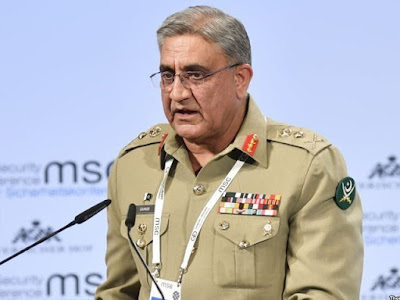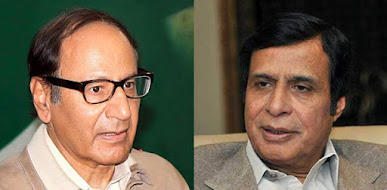I have written this article a bit differently than usual as the Chinese character building and their crises handling management really impressed me. I was impressed by the number of questions posed to me as a speaker at their security university in Beijing. The big question was why Pakistan had failed to utilise its water, agriculture, tourism, and minerals. It is true; we have failed to explore these fields.
China progressed rapidly as the first letter they have taught to their nation is the value of honesty. They are the contributors to their personal character and their individual input. That is why I am jolting down my observations based on several interviews by me and my institute of research and reforms from various factions of society. I see dissatisfaction with the ongoing situation since people are living for a better hope but every morning brings more issues and disappointments.
The analysis shows that Pakistanis have not seen the real freedom of mind till now as we have to think with an open mind and work with honesty to take our country forward. This reminds me that we were under siege for more than a century during the British Raj in the Subcontinent from 1858 until the independence of India and Pakistan in 1947. Now that we are independent, we should behave like an independent nation and work like the people of China.
Our country was born through violence as the Hindu-Muslim partition of the Subcontinent witnessed hundreds of thousands of killings of Muslims during riots, ethnic cleansing, and cross-border migrations and these sacrifices should be enough to lead us to the right path of honesty to make this country stronger for our future generations.
Why do we still have violence and Muslim-to-Muslim fights; our internal clashes have become our trademark for power and greed. We are losing our moral values at the cost of our national loss to fulfil our greed of ill-gotten money and greed of power.
Even after getting a separate homeland for ourselves, we are confused about whether we are a secular state or an Islamic one. We need to clear this faultline. We claim to be Muslim but we hardly follow the principles of Islam as we do everything which is prohibited in Islam. We have a maximum number of cases of frauds, corruption and rape cases.
It is sad to note that Pakistan is now 74 years old and yet we are behaving like beggars as we still haven’t learned to work for Pakistan. China got independence right after us but look where China is and where we are. They have built their national character and directed the nation to the collective national interest whereas hardly learned to move collectively for the national interest. We have adopted horse-trading as we are not sincere to the house of parliament which is supposed to be free of dishonesty and corruption. Where are we heading? It is only due to no rule of law and is now treated as a privilege to break law publicly?
There is a conflict of interest everywhere which results in a hindrance in the way of true character building of our youth which results in unemployment. Our country under unemployment is a contributing factor for the youth to lose faith in the state.
Society is feeling insecure and confused as we don’t know what we actually want. Thus, the insecurity breeds a lack of confidence and self-assurance in our nature and character. The insecurity also breeds criminal activities. We keep looking for reasons and excuses to secure ourselves. We display double standards and in fact, we deceive ourselves to avoid criticism and we live in a fake society.
If we are poor or middle class and surrounded by peers who are well off and filthy rich, we want to amass wealth to match them and this tussle makes us forget all norms of honesty and we can commit any criminal act to grab money, ignoring its cost for the family and the country. This greed blinds us in marking the difference between legal and illegal, right and wrong; the trend is only to earn wealth to become rich overnight.
The greed and desperation to become rich bring in the factor of corruption as one makes every possible effort to upgrade his status in society by hook or crook. This negativity is the main reason for negative character building and one forgets his/her responsibility to himself and to the State. These directionless factions of the society start deviating from the national responsibilities as well as from their religion. The level of character and moral values can be well judged by the number of rape cases, child abuses, and increases in other crimes—despite stringent laws, these heinous crimes are increasing every day.
Are we heading towards some major destruction as the crime rate is on the increase and the rule of law has become a story of the past? When dishonesty overcomes honesty and grabs all the positive national space, then society cannot expect to correct itself and justice also disappears.
It is unfortunate to express that most of the share of justice goes to those who can afford its cost. I will not define the cost of justice for a poor man but if you take a survey of lower courts and urban and rural police stations, they can demonstrate the reality and then judge. What I am expressing is the voice of those who suffer in the hands of the obsolete social justice system and governing model.
The parliament is not meant for the entry of a common man as all rights are reserved for the elite and for generation-to-generation entries. Where are the main ingredients for national character building; I am sorry to say it is all missing in the planning and the agenda of the government. What are we doing for character building of the youth and every citizen of Pakistan to shoulder the responsibility as dutiful citizens?
Our politics has divided the country’s population under multiple political slogans for their political ends. We see leaders of political parties least bothered about their role in uniting communities as they are only seen pointing out wrong doings and the corruption of their political rivals.
As the Chinese say, that a big wall and tall walls cannot build defence or block the enemy’s attack; it is the character of the nation which blocks enemies. No tall wall of NAB will ever stop the corruption as it is only the national character that will root out crimes and make a crime-free society. Let us build our national character and not a big wall of laws that get buried under heaps of files in the police stations and courts.
Perhaps we need to change our system for better governance in order to give relief to the common man and his children.
The article was published in The Nation on March 30, 2021, link to the article is https://nation.com.pk/30-Mar-2021/national-tragedies-and-faultlines











